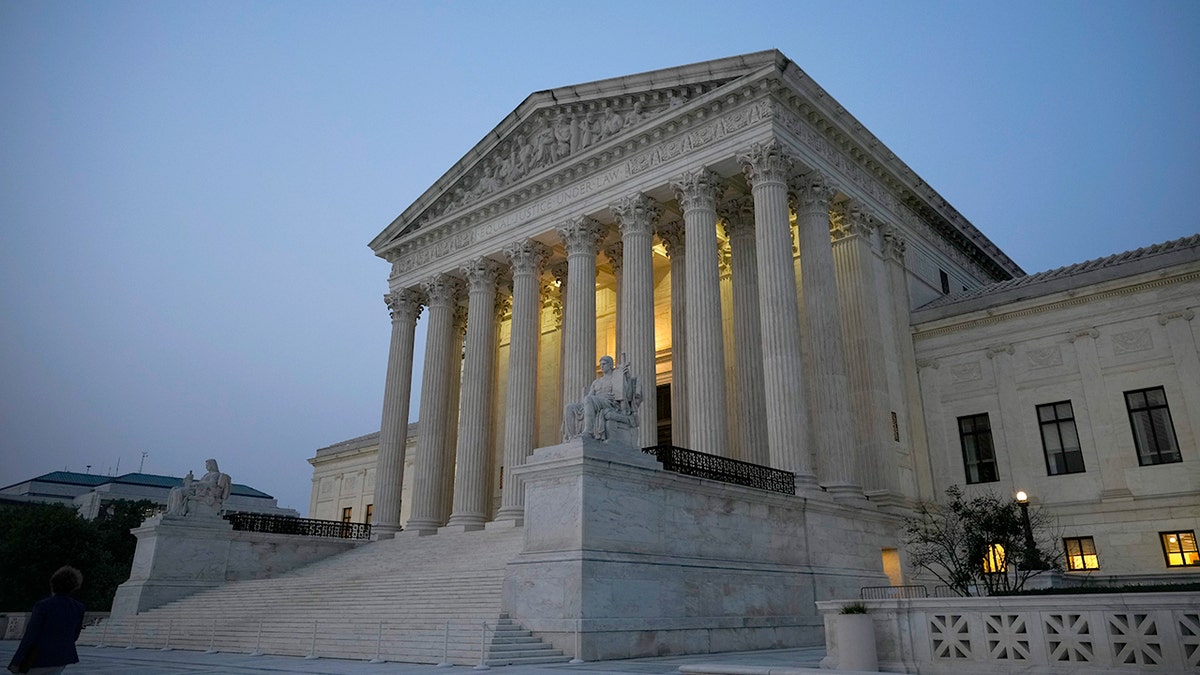Supreme Court limits judges’ authority to block infrastructure projects over environmental concerns
The Supreme Court on Thursday limited the authority of judges to block infrastructure projects due to environmental concerns.
The nine justices handed down the lone decision Thursday morning, slightly curbing judicial authority at a time when President Donald Trump’s administration is loudly complaining about alleged judicial overreach. The case, Seven County Infrastructure Coalition v. Eagle County, relates to the National Environmental Policy Act (NEPA) and the requirement for environmental impact statements (EIS) in infrastructure projects supported by the federal government.
“NEPA does not allow courts, ‘under the guise of judicial review’ of agency compliance with NEPA, to delay or block agency projects based on the environmental effects of other projects separate from the project at hand,” Justice Brett Kavanaugh wrote in the opinion of the court.
“Courts should afford substantial deference and should not micromanage those agency choices so long as they fall within a broad zone of reasonableness,” the opinion continued.
TRUMP ADMINISTRATION ASKS SUPREME COURT TO REVIEW EL SALVADOR DEPORTATION FLIGHT CASE

Kavanaugh went on to state that agencies should not be expected to consider the environmental impact of any project aside from the one they are currently working on, “even if” the environmental impacts “might extend outside the geographical territory of the project or materialize later in time.”
“The fact that the project might foreseeably lead to the construction or increased use of a separate project does not mean the agency must consider that separate project’s environmental effects,” the court ruled.
Thursday’s decision was an 8-0 ruling, with Justice Neil Gorsuch taking no part in the consideration of the case. Chief Justice John Roberts and Justices Clarence Thomas, Samuel Alito and Amy Coney Barrett joined with Kavanaugh’s opinion.

Meanwhile, Justice Sonia Sotomayor filed a separate concurring opinion, onto which joined Justices Elena Kagan and Ketanji Brown Jackson.
Trump, having a history in major construction projects, has repeatedly complained about environmental impact statements and the roadblocks they can cause.
NUMBER OF INJUNCTIONS HALTING TRUMP POLICIES TROUNCES PREDECESSORS BY DOUBLE
Republicans have also widely criticized what they see as judicial overreach in federal judges unilaterally blocking major aspects of Trump’s agenda.
“Universal injunctions are an unconstitutional abuse of judicial power,” Sen. Charles Grassley, chairman of the Senate Judiciary Committee, told Fox News Digital earlier this month.
“Just this past week, a D.C. district judge issued a universal injunction blocking the president’s executive order requiring voter ID or proof-of-citizenship prior to voting in national election,” he continued. “Judges are not policymakers.”
CLICK HERE TO GET THE FOX NEWS APP
The Supreme Court is considering the wide use of universal injunctions in a separate case that will be handed down in the coming weeks.
